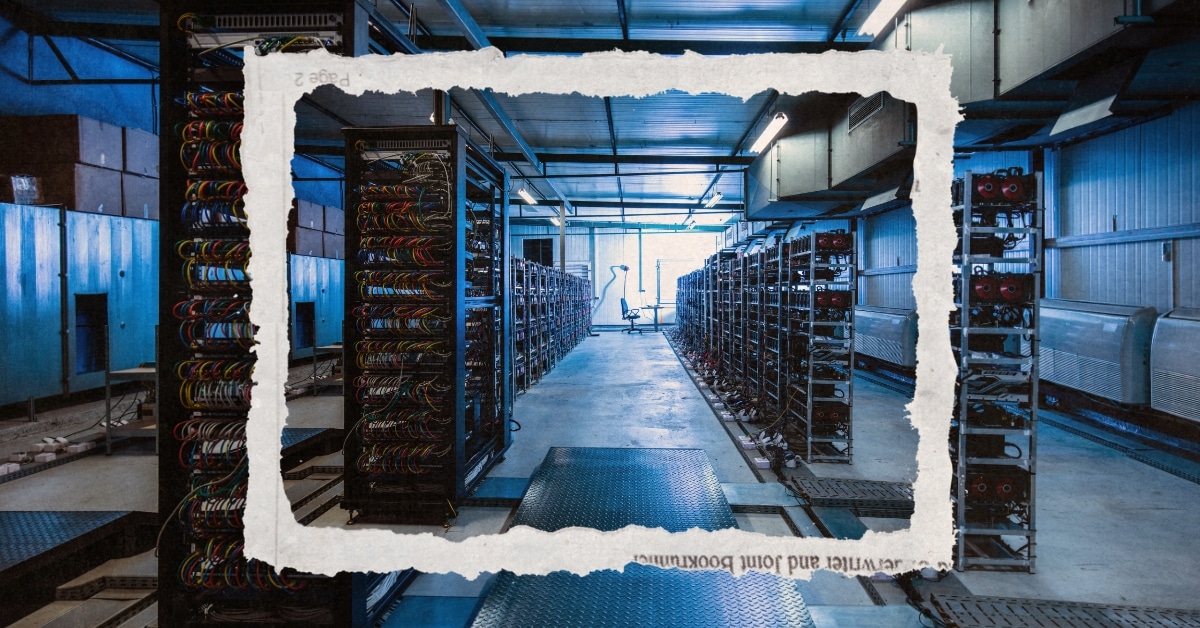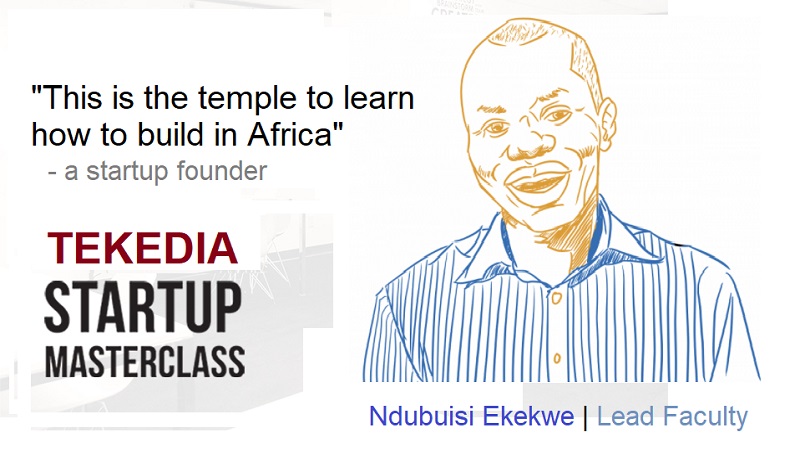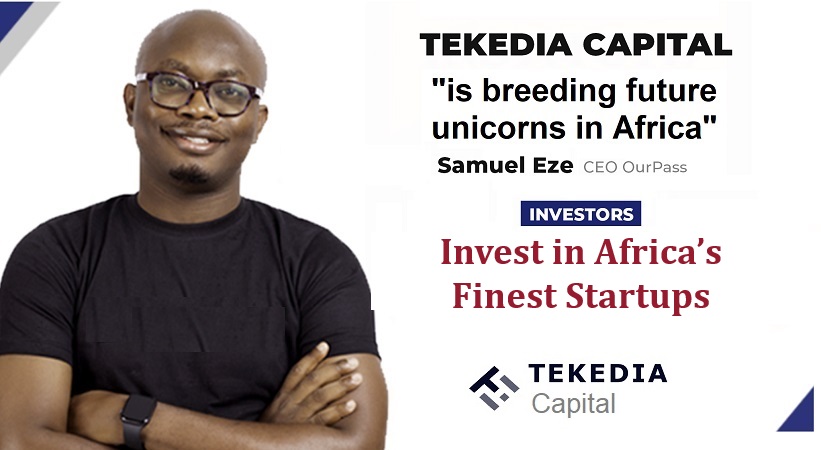News
A First Amendment Fight for the Future of the Internet

Storm was right about what this meant for him and his fellow app creators. That August, the U.S. Treasury Department subjected Tornado Cash to severe sanctionsDays later, officials in the Netherlands arrested co-developer Alexey Pertsev. And a year later, the U.S. Department of Justice indicted Storm and a third developer, Roman Semenov. They are charged with money laundering, violating U.S. sanctions law and operating an unauthorized money transmitter.
In May, a Dutch court found Pertsev guilty of money laundering and sentenced him to more than five years in prison. Semenov remains at large. Storm’s trial is scheduled to begin in September in New York. He faces up to 45 years behind bars.
Federal prosecutors say Storm helped Lazarus Group launder money, though they have not presented any evidence that he provided direct assistance. Storm’s defenders, who include blockchain advocates and the Internet freedom group Electronic Frontier Foundation, say all he did was help create a software tool.
Storm’s lawyers say the First Amendment protects its actions, because for nearly three decades U.S. courts have recognized software code as protected speech. “At its core, this prosecution represents an unprecedented attempt to criminalize software development,” Storm’s lawyers argued in a March motion to dismiss the indictment.
The dispute is technically and legally complex. But at its heart is a long-standing debate over whether software code is protected by the First Amendment. And the outcome could determine whether a new class of software is truly off-limits to Americans.
“The Bad Things People Do With the Software You Write”
In 1995, mathematician Daniel Bernstein sued the U.S. State Department. He said the government had violated his First Amendment rights by requiring him to register as an arms dealer and obtain an export license before he could publish the source code for Snuffle, his encryption algorithm. A district judge agreed with Bernstein, rejecting the government’s argument that the Snuffle code was conduct, not speech.
The Ninth Circuit Court of Appeals upheld the lower court’s decision in 1999. Several other lower court decisions in the late 1990s reached the same conclusion as the Bernstein case. The justices considered code to be speech because it is written in a language and is a mode of communication: it is “expressive.”
But contrary to what many in the tech world seem to think, this legal issue is not settled. In a dissent to the Ninth Circuit’s decision in Bernstein , Judge Thomas G. Nelson made a compelling point: “The basic function of the cryptographic source code is to act as a method of controlling computers,” he wrote. “This functional aspect of the cryptographic source code contains no expression; it is simply the tool used to build the cryptographic machine.”
The code that runs Tornado Cash may be expressive, but it also works. It instructs a blockchain network to anonymize cryptocurrency transactions by using advanced cryptography to untraceably transfer cryptocurrency from one software “wallet” to another. While the cryptocurrency is in the first wallet, it is linked to every transaction the wallet has ever participated in. In the second wallet, all that history is erased.
Encryption and privacy advocates believe that encrypting transactions in this way has legitimate uses, such as anonymous donations to a sensitive political cause. But like cash, Tornado Cash has illicit uses. The Lazarus Group used it to sweep up digital breadcrumbs that allow investigators to track criminal funds on blockchains.
What makes Tornado Cash new to the law is that, despite Storm and the other developers knowing that cryptocurrency thieves were using Tornado Cash, they failed to stop the criminals. The core of the privacy tool is a set of smart contracts (a cryptographic term for software that runs on a blockchain) that no one, not even the creators of Tornado Cash, can change or shut down.
That’s the point of blockchains: they run without the control of any single entity or person. Blockchain-based software can have built-in kill switches and ways for developers to make updates, but the developers of Tornado Cash have chosen to renounce all control over the main application in 2020. They claim that their intention was to give privacy to cryptocurrency users, not to help criminals.
“The question is whether you can be held criminally liable for bad actions that people do with software that you write, even if you didn’t intend for them to do those bad actions with that software,” says Peter Van Valkenburgh, research director at the Washington, D.C.-based policy advocacy group Coin Center.
In the Netherlands, the answer appears to be yes, and Alexey Pertsev will have to spend more than five years in prison for it. The US Constitution further complicates Roman Storm’s case.
When parallels break down
The sanctions law that Storm allegedly violated is called the International Emergency Economic Powers Act (IEEPA). Passed in 1976, it gives the president the power to regulate international trade in the name of national security. In 1988, Congress amended the IEEPA to clarify that the president cannot block the international trade of items protected by the First Amendment, including books, music, art, and other “informational materials.” This update became known as the Berman Amendments.
Storm’s defense team has argued that the Tornado Cash software is informational materials under the Berman Amendments. And while that law doesn’t protect Storm, they argue that the First Amendment does.
The government responds that much of Storm’s defense rests on a simplistic idea: that “he should not be held criminally liable because his conduct involved computer software.” That idea “would have incredibly broad implications,” prosecutors wrote in an April court filing. For example, they said, it would prevent the president from barring a U.S. bank with a foreign subsidiary from doing business with a person or group sanctioned for banking software.
But the banking parallel doesn’t work, Van Valkenburgh argues. Banks have legal relationships with their customers: promises, guarantees, terms of service, etc. Such relationships are “conduct” (not expressive conduct, like flag burning), he says, and the First Amendment doesn’t prevent the government from regulating such conduct. Tornado Cash’s developers had no such relationships with their users, Van Valkenburgh says. Crucially, they never took control of any user funds. As Van Valkenburgh sees it, the developers’ only conduct, in a legal sense, was publishing software without a backdoor that would allow them to control its use once it was out in the world.
The problem with “code is word”
The complexity of the Tornado Cash case makes it difficult to parse the arguments. But ultimately it comes down to who is responsible when a new piece of software is used to break the law.
Here lies the problem with the statement that “code is speech.”
If we assume that all code is spoken, any regulation of software will be vulnerable to a First Amendment challenge. Given the role that software plays in so many of our interactions today, this is not feasible, he says. Xiangnong (George) Wangattorney at the Knight First Amendment Institute at Columbia University.
In 2021 item In the Wisconsin Law Review, Wang argued that whether code is speech is no longer the right question for lawyers, judges, and legislators to consider. “It really comes down to how it’s used,” he says. “What are the actual values at stake?” Is it an attempt to participate in democratic discourse? To disseminate useful information to the public? Or to distribute a product? There won’t always be clear answers, Wang says. But as software becomes ever more pervasive and complex, even autonomous, the public will have to decide what exactly the First Amendment should protect.
Decentralized software applications and artificial intelligence make things even less clear. But Storm’s lawyers are still betting that they can lean hard on the First Amendment.
Van Valkenburgh’s organization, Coin Center, has argued that Storm’s choice to write and publish Tornado Cash “is an expression of a powerful political and scientific point of view in and of itself.” In other words, it argues that systems like Tornado Cash should be allowed despite the government’s disdain for them.
“Some in the U.S. government might have strongly preferred that (the developers) publish their code with a secret vulnerability or ‘backdoor’ to law enforcement, or simply not publish their views at all,” Coin Center said in a statement supporting Storm. It added: “The defendants cannot and should not be held liable for simply publishing the software as they saw fit.”
Mike Orcutt is a founding editor of Glitch Projecta newsletter focused on the future of the Internet. He was previously an editor at MIT Technology Review and The Block, a cryptocurrency news publication.
News
US Cryptocurrency Rules Delayed by ‘Never-Ending’ Lawsuits

Ripple CEO says cryptocurrency industry still seeking regulatory clarity from US
Speaking to Bloomberg News on Wednesday (July 17), Author: Brad Garlinghouse he said America is behind behind other countries which have already adopted cryptocurrency regulations.
“What we’re seeing, where it’s the UK, Japan, Singapore… even the European Union, more than two dozen countries have come together to provide a framework for cryptocurrency regulation,” Garlinghouse said.
“It’s frustrating that we as a country can’t get that regulatory framework in place. And instead, we have this never-ending lawsuit coming from the SEC that doesn’t really address the problem.”
Ripple has been the target of some of these legal disputes. Securities and Exchange Commission (SEC) sued the company in 2020, accusing it of conducting a $1.3 billion operation offering of unregistered securities tied to its XRP token.
However, last year a judge ruled that only Ripple’s institutional sales of XRP, not retail sales, violated the law, a decision widely seen as a victory for the cryptocurrency industry.
As PYMNTS noted at the time, that ruling has “far-reaching repercussions impact across the digital asset ecosystem, which has long maintained that its tokens do not represent securities contracts.”
However, Garlinghouse told Bloomberg on Wednesday that the company cannot wage multimillion-dollar legal battles over each token.
He spoke to the news agency from the Republican National Convention in Milwaukee, where the party is backing the candidacies of former President Donald Trump and Ohio Sen. J.D. Vance, both of whom are considered pro-cryptocurrency.
But Garlinghouse argued that cryptocurrencies “should not be a partisan issue,” and noted that he had recently attended a conference in Washington that included Democrats, including White House officials.
“I think they were there, listening to the industry… it was refreshing to start having that conversation,” she said.
President Joe Biden earlier this year he vetoed a measure which would have ended the SEC’s special rules for crypto-asset custodians. This legislation was supported by both the digital asset industry and the banking industry.
Ripple early this year donated $25 million to the cryptocurrency industry’s super PAC Fair Smoothiewith Garlinghouse stating at the time that such donations would continue every year, as long as the industry had its detractors.
Second Open SecretsWhich monitor spending For campaigns, the PAC has spent $13.4 million this year, much of it to help defeat Rep. Katie Porter’s (D-Calif.) U.S. Senate campaign.
News
The Future of Cybersecurity in the Cryptocurrency Industry

The cryptocurrency space has had a tumultuous journey, with its fair share of ups and downs. As we look to the future, one area that remains a constant focus is cybersecurity. The digital nature of cryptocurrencies makes them inherently vulnerable to cyber threats, and as the industry evolves, so does the landscape of potential risks.
In 2022, the cryptocurrency market faced significant challenges, with over $2 trillion in market value lost. This event served as a wake-up call for the industry, highlighting the need for robust cybersecurity measures. The future of cryptocurrency security is expected to see a shift towards more regulated and established institutions taking the reins of crypto technology and blockchain infrastructure.
The decentralized nature of cryptocurrencies offers numerous benefits, such as transparency and financial inclusion. However, it also introduces unique security challenges. The risk landscape is filled with threats such as hacking, phishing, ransomware attacks, malware, and social engineering. These threats not only lead to financial losses, but also damage the reputation and trust within the cryptocurrency ecosystem.
Mini-MBA Tekedia edition 15 ((September 9 – December 7, 2024) started recordings; Register today for discounts reserved for early bird customers.
Tekedia AI in Business Masterclass Opens registrations Here.
Join the Tekedia Capital Syndicate and IInvest in Africa’s best startups Here.
The decentralized nature of cryptocurrencies offers many benefits, but it also presents unique security challenges. Cyber risks such as hacking, phishing, and ransomware pose threats to the integrity of digital assets. The infrastructure that supports cryptocurrencies is not immune to vulnerabilities, including smart contract flaws and exchange hacks.
To address these vulnerabilities, the infrastructure that supports cryptocurrencies must be strengthened. Smart contract vulnerabilities, exchange hacks, wallet breaches, and flaws in the underlying blockchain technology are significant concerns that must be addressed to ensure the security and integrity of digital assets.
As cybercriminal tactics and techniques become more sophisticated, the cryptocurrency industry must stay ahead of the curve. The future will likely see more targeted attacks, exploiting weaknesses in infrastructure, networks, and human factors. This requires a proactive and multifaceted approach to cybersecurity.
To mitigate these risks, several measures must be adopted:
Strengthening security measures: Developers, exchanges, and wallet providers must improve security protocols, use strong encryption, implement multi-factor authentication, and conduct regular security audits.
Education and awareness: Users should be educated on best practices for protecting their digital assets, including using strong passwords, recognizing phishing attempts, and using hardware wallets for secure storage.
Looking ahead, the cryptocurrency industry is expected to see an increased focus on robust security measures. Blockchain projects and exchanges are likely to invest in advanced encryption techniques and decentralized storage solutions to protect user assets. The future impact of cyber risk on cryptocurrencies will depend on the collective efforts of stakeholders to address vulnerabilities and strengthen security measures.
Collective efforts by stakeholders in the cryptocurrency space are crucial to address vulnerabilities and strengthen security measures. While challenges persist, advances in cybersecurity technologies and practices offer hope for a more secure and resilient cryptocurrency ecosystem.
The future of cybersecurity in the cryptocurrency industry depends on finding a balance between innovation and regulation. It requires a collaborative effort from all parties involved, from developers to end users, to create a secure environment that fosters trust and growth in the industry. As we move forward, it is critical that lessons learned from past events guide the development of stronger security measures, ensuring the longevity and stability of cryptocurrencies as a vital part of the modern economic toolkit.
Like this:
Like Loading…
News
Bullish XRP and RLBK price predictions rise, outpacing the broader cryptocurrency market, prompting Shiba Inu holders to switch!

Bitcoin’s one-week surge from $60,000 has pushed other cryptocurrencies into an uptrend. However, for many altcoins, this trend has been temporary. Altcoins such as XRP and Shiba Inu (SHIB) have experienced price drops. However, Rollblock, a new altcoin on the Ethereum blockchain, has thrived during this period, attracting thousands of investors looking for long-term growth.
XRP’s Nearly 30% Growth Over Last Week Drops as Selling Pressure Increases
XRP is seeing further price decline as Ripple investors withdraw their profits from the token. The surge in XRP’s price to $0.64 in the past week has provided investors with a perfect opportunity to increase their returns in the short term. With the ongoing sell-off in XRP, XRP has jumped over 8% in the past day and is now trading at $0.59. However, analysts tracking XRP indicators predict that XRP could still extend its gains by over 30% in the coming weeks.
Shiba Inu (SHIB) marks its third consecutive day of losses
Shiba Inu (SHIB) is in a period of adjustment after a week of strong gains. In the last 24 hours, SHIB has seen a jump of over 7%, reflecting a natural market fluctuation. Analysts are observing a death cross on the Shiba Inu chart, which historically signals the potential for future opportunities as the market stabilizes. As investors explore new possibilities, some are diversifying into promising altcoins like Rollblock (RBLK) to strategically rebalance their portfolios and capitalize on the emerging trend.
Rollblock (RBLK) Up Another 7% as New Investors Join Pre-Sale
Rollblock (RBLK) has taken the cryptocurrency market by storm, having attracted investors from more popular altcoins like Shiba Inu (SHIB) and XRP. Rollblock’s growth is attributed to its utility in the $450 billion global gaming industry.
Rollblock aims to use blockchain technology to bridge the gap between centralized and decentralized gambling. With blockchain technology, Rollblock secures every transaction in its online casino, providing transparency and convenience to millions of players who are uncomfortable placing bets on other iGaming platforms.
This innovative use of blockchain technology in the industry has grown Rollblock to over 4,000 new users in less than two months. With plans to add sports betting, this number is expected to grow exponentially in Q3.
Rollblock uses a revenue sharing model that splits up to 30% of its casino’s weekly profits with token holders. This happens after Rollblock buys back $RBLK from the open market and uses half of it for rewards. The other half is burned to increase the price of $RBLK.
Rollblock price has seen four increases in the past month with $RBLK tokens now selling for $0.017. Analysts predict that at the current growth rate, Rollblock could increase by over 800% before the presale ends. For investors looking for a long-term token with growth potential, phase four is the best time to buy Rollblock before its price skyrockets!
Discover the exciting Rollblock (RBLK) pre-sale opportunities now!
Website:https://Rollblockpresale.io/
Social: https://linktr.ee/Rollblockcasino
No spam, no lies, just insights. You can unsubscribe at any time.
News
Texas Crypto Miners Turn to AI as Crypto Declines

As cryptocurrency mining becomes less profitable, Texas cryptocurrency mining companies are switching to supporting artificial intelligence companies.
Bitcoin miners, with their sprawling data centers and access to significant energy resources, are ideally suited for computationally intensive AI operations, and as cryptocurrency mining becomes less profitable, companies see this shift as a logical answer to their problems.
On Thursday, Houston-based Lancium and Denver-based Crusoe Energy Systems announced a multibillion-dollar deal to build a 200-megawatt data center near the West Texas city of Abilene to support advanced artificial intelligence applications such as medical research and aircraft design, CNBC reported. The plant represents the first phase of a larger 1.2 gigawatt project.
Lancium and Crusoe’s move into AI mirrors a broader trend among bitcoin miners. The combined market capitalization of the top U.S.-listed bitcoin miners hit a record $22.8 billion in June. Companies like Bit Digital and Hut 8 are diversifying into AI, with Bit Digital securing a $92 million annual revenue deal to supply Nvidia GPUs and Hut 8 raising $150 million to expand its AI data center.
But the growing popularity of these operations also presents challenges, particularly for the Texas power grid. Last month, the Electric Reliability Council of Texas announced that the state is expected to nearly double its energy production by 2030 to meet the high energy demands of data centers and cryptocurrency operations.
Lieutenant Governor Dan Patrick expressed concern about the projections.
“Cryptocurrency miners and data centers will account for more than 50% of the additional growth. We need to take a close look at these two sectors,” He wrote on Twitter/X. “They produce very few jobs compared to the incredible demands they place on our network. Cryptocurrency miners could actually make more money selling electricity to the network than they do from their cryptocurrency mining operations.”
Analysts predict significant growth in data center power capacity, which is expected to account for up to 9% of U.S. electricity consumption by 2030.
The operations also pose challenges for nearby cities. Earlier this month, TIME reported that a crypto-mining facility was seriously compromising the health of residents in the city of Granbury. TIME reported more than 40 people with serious health problems, including cardiovascular disease, high blood pressure and hearing loss. At least 10 of the residents needed to go to the emergency room or an urgent care facility.
The disturbances were caused by the extreme noise generated by the crypto-mining facility’s fans, which are used to keep the machines cool. While the proposed data center in Abilene would use liquid cooling systems, it’s still unclear whether the facility’s operations would pose a health risk to local residents.
-

 Nfts12 months ago
Nfts12 months agoShardLab Launches ZK-Based Tool for Digital Identity and NFT Vouchers
-

 News1 year ago
News1 year agoWallet recovery firms are abuzz as stranded cryptocurrency investors panic in the bitcoin boom
-

 Bitcoin12 months ago
Bitcoin12 months agoBitcoin, Ethereum, Solana and Cryptocurrency Markets Look Ready to ‘Send’ as Stars Align, According to Investor Chris Burniske
-

 Altcoins12 months ago
Altcoins12 months agoThree Altcoins Poised for Significant Growth in 2024: ETFS, OP, BLAST
-

 Altcoins12 months ago
Altcoins12 months agoAccumulate these altcoins now for maximum gains
-

 Nfts12 months ago
Nfts12 months agoOG Crypto Artist Trevor Jones Unveils Groundbreaking Collection of Ordinals | NFT CULTURE | NFT News | Web3 Culture
-

 Bitcoin12 months ago
Bitcoin12 months agoBillionaires are selling Nvidia stock and buying an index fund that could rise as much as 5,655%, according to some Wall Street analysts
-

 Videos8 months ago
Videos8 months agoKamala just won the boner! [Bad For Crypto]
-

 Videos1 year ago
Videos1 year agoLIVE FOMC 🚨 Could be CATASTROPHIC for Altcoins!
-

 Videos1 year ago
Videos1 year agoSTOCK MARKET FUD! ⚠️ [Why This Is GREAT For Bitcoin Traders!]
-

 News1 year ago
News1 year agoA Guide for Newcomers & Beginners – Forbes Advisor
-

 Videos1 year ago
Videos1 year agoAttention: a historically significant BITCOIN signal has just appeared!







